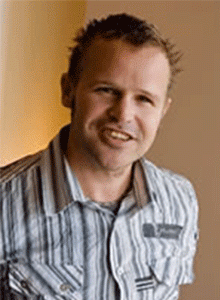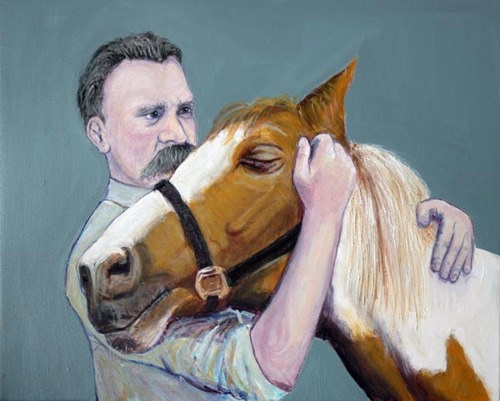 Deakin’s Dr Matthew Sharpe will be teaching a Melbourne School of Continental Philosophy Evening School class this semester on the work of Cicero.
Deakin’s Dr Matthew Sharpe will be teaching a Melbourne School of Continental Philosophy Evening School class this semester on the work of Cicero.
Marcus Tullius Cicero: Philosopher, Statesman, Orator
Lecturer: Dr Matthew Shape
6.30-8.30pm Every 2nd Wed – Starts 24 March
(Note: first class only runs 6-8pm)
Classes: 25 March, 8 April, 22 April, 6 May, 20 May, 3 June
The w orks of Marcus Tullius Cicero exerted an extraordinary, continuous influence on Western thought and philosophy until the 19th century, and ‘Tully’ (as he was affectionately known even in the 18th century) was revered during the renaissance and the enlightenment. An extraordinarily complex figure—philosopher, lawyer, orator, statesman, and historian; in parts Sceptic, Platonician, patriot and Stoic—Cicero was a fierce republican opponent to Cataline, Clodius, Julius Caesar and Marc Antony, as well as (in his ‘politically enforced leisure’) the author of works on rhetoric, law, politics, religion, ethics, and epistemology. It is to these works, mostly still extant, that we owe a good deal of our knowledge of the Hellenistic and Roman thought (in comparison to which, ironically, his work has been devalued as unoriginal or derivative). In this course, we will take a leisurely look at Cicero’s works on rhetoric, politics, epistemology (theory of knowledge), religion, ethics, the emotions and the good life. Classes will mix lectures aiming to elucidate Cicero’s contexts, influences, interlocutors and concerns, with reading and commentary on specific passages. In doing the course, students will be gaining insight into one of the most influential thinkers in Western history, living and writing in a moment in history oddly reminiscent of our own, and aiming everywhere to reconcile the life of the mind with ethical and political concerns.
orks of Marcus Tullius Cicero exerted an extraordinary, continuous influence on Western thought and philosophy until the 19th century, and ‘Tully’ (as he was affectionately known even in the 18th century) was revered during the renaissance and the enlightenment. An extraordinarily complex figure—philosopher, lawyer, orator, statesman, and historian; in parts Sceptic, Platonician, patriot and Stoic—Cicero was a fierce republican opponent to Cataline, Clodius, Julius Caesar and Marc Antony, as well as (in his ‘politically enforced leisure’) the author of works on rhetoric, law, politics, religion, ethics, and epistemology. It is to these works, mostly still extant, that we owe a good deal of our knowledge of the Hellenistic and Roman thought (in comparison to which, ironically, his work has been devalued as unoriginal or derivative). In this course, we will take a leisurely look at Cicero’s works on rhetoric, politics, epistemology (theory of knowledge), religion, ethics, the emotions and the good life. Classes will mix lectures aiming to elucidate Cicero’s contexts, influences, interlocutors and concerns, with reading and commentary on specific passages. In doing the course, students will be gaining insight into one of the most influential thinkers in Western history, living and writing in a moment in history oddly reminiscent of our own, and aiming everywhere to reconcile the life of the mind with ethical and political concerns.
Course Schedule
- Introduction: Cicero the statesman, the orator, and the rhetorician (on how to speak persuasively, and about philosophy, in Romulus’ sewers)
- The political works: Cicero’s (Roman) Republic, the dream of Scipio, and the Laws
- The Academica: Cicero, the Stoics and the sceptics on knowledge (and an introduction to the ancient philosophical schools)
- The religious works: on the nature of the gods, divination, and fate (and an introduction to the ancient religious context)
- Cicero on the good: De Finibus (of moral ends) & the Tusculan Disputations
- Cicero on reconciling principle and expediency: De Officiis (the last work)
Click here for more information.
 Burwood Corporate Centre, Thursday 6th November 2014
Burwood Corporate Centre, Thursday 6th November 2014 Professor Jack Reynolds and La Trobe’s Ricky Sebold will be speaking on “The Existential Turn: Niezsche and French Existentialism” on 25th September 2014, 6:30-8:30pm as part of
Professor Jack Reynolds and La Trobe’s Ricky Sebold will be speaking on “The Existential Turn: Niezsche and French Existentialism” on 25th September 2014, 6:30-8:30pm as part of  Matt Sharpe will be presenting the following as part of the
Matt Sharpe will be presenting the following as part of the  Catch Dr Leesa Davis talking about “Buddhist Conceptions of Virtue” this Wednesday August 27, 7.00 – 9.00pm, at the
Catch Dr Leesa Davis talking about “Buddhist Conceptions of Virtue” this Wednesday August 27, 7.00 – 9.00pm, at the  This Sunday, 17th August, catch Deakin’s own
This Sunday, 17th August, catch Deakin’s own 